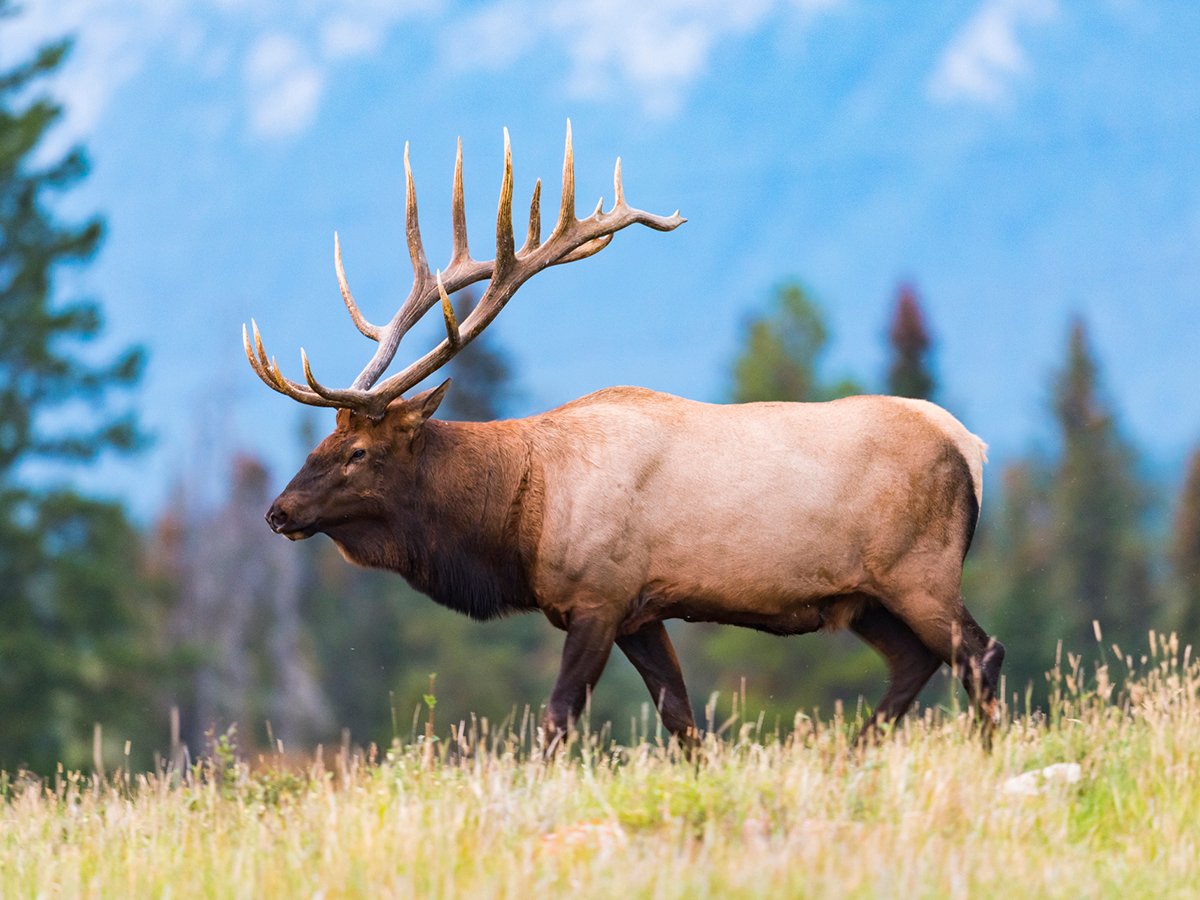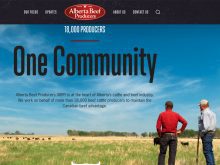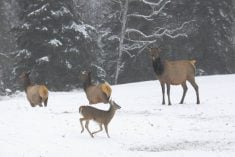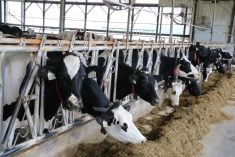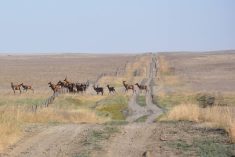Glacier FarmMedia – It would be tempting to think that tariffs, disease or drought would be the top of the agenda at Alberta Beef Producers’ regional meetings.
But this year, during its regular series of meetings, the producer group is finding elk are spurring the most discussion.
In the latter stages of the ABP’s producer meeting in Vermilion on Jan. 23, where producers had an opportunity to speak about their concerns and put forward resolutions for the organization to address, most producers in the room shared in a long discussion their issues arising from the growing elk population.
Read Also

Canola oil transloading facility opens
DP World just opened its new canola oil transload facility at the Port of Vancouver. It can ship one million tonnes of the commodity per year.
A handful of resolutions that focused on elk and other ungulate and pest concerns were passed by the end of the meeting.
“This is the sixth producer meeting, and we’ve talked about elk at five of them,” said northeast zone director Miles Wowk during the discussion.
The discussion began with a proposed resolution from a previous meeting that called for more timely payments to be made to producers for ungulate damage. However, the beef producers in attendance said the time frame of payments is far from their top priority.
One producer explained that the cost of damage and prevention of further damage from elk far outweighs any payments they receive from wildlife damage control programs. He said the first time he made a claim for losses due to ungulates, he received $4,000 for fencing materials. As well, in order to receive any payment for damages in the future, he would have to fence off his three feed yards, which would cost him much more than the $4,000 in funding he received.
Between the damage to property and the grazing in crops and feed yards, elk pose a big threat to the bottom line of a cattle operation.
Another producer said the provincial government needs to decide one way or the other on how to manage the elk population.
“There’s only two solutions: either we kill them or we feed them. If we want these elk in the province, let’s feed them.”
An increase in elk hunting tags does not seem to be helping the elk issue, at least not in northeastern Alberta. Many producers said the elk herds around their operations have become increasingly nocturnal, making them nearly impossible to hunt.
One producer in attendance said his trail cameras have shown the elk in his area entering his feed yards at 2 a.m. and leaving by 4 a.m. So while giving hunters more nuisance tags to control the elk population seems like a logical starting point, many producers said it is unlikely to make a dent in the issue.
While elk were the prominent topic of discussion, other wildlife concerns were also brought up.
Migratory birds getting into swath grazing, Richardson’s ground squirrels destroying pastures and crops and wild boar causing damage and potentially spreading African swine fever were also discussed throughout the evening, with resolutions passed to address those wildlife concerns as well.
“There’s lots of these issues we’re trying to address on the wildlife committee,” said ABP northeast zone director Jay Hager.
“We are wanting producers who do have issues to speak out so we do have a stronger case to present, and we’re trying to set up a pretty big meeting. We discussed it at our last meeting where we’re trying to meet with different parts of the government and with different agricultural communities and put our heads together to try to get this solved.”
By the end of the meeting in Vermilion, the producers in attendance had passed resolutions urging the Alberta government to increase the number of antlerless elk draw seasons, make more timely payments for ungulate damage and find a reasonable solution to the growing elk population in agriculture areas.
Other unrelated resolutions that were passed at the meeting included a plea to ABP to promote mental health resources through its communications channels and a push for ABP to lobby the provincial government to lower the land titles transfer within families to $100.
The ABP producers meetings will continue around the province through Feb. 13, with its annual general meeting scheduled for March 4-5 in Calgary.



